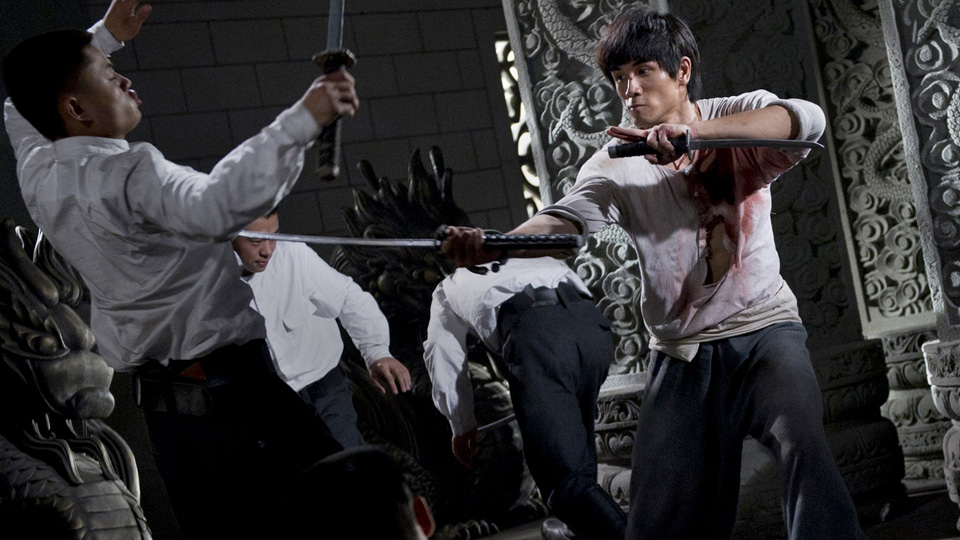Once Upon a Time in Shanghai is yet another retelling of the story of Ma Wing-Jing, a real-life Ching Dynasty-era boxer later popularized in books, television, and film.
Ma Yongzhen travels from his hometown to Shanghai to seek a livelihood and there he meets rising overlord Lung Chat, they become brothers and took down the largest triad gang, the Axe Gang.
The Axe Gang is a good reminder to Project A film with Jackie Chan, but if Jackie’s film was the fun and entertaining flick Once Upon a Time in Shanghai is a tough action taking place in a dark ruthless criminal world of Shanghai.
Must admit Andy On is growing as an actor and a bad guy with every film he makes. He studied film fighting under former Jackie Chan Stunt Team leader Nicky Li and this gives you a clear understanding why he is so good on the screen, actually, you can’t be bad when you had such an experience.
Andy plays the role of Lung Chat with remarkable dexterity, one minute dazzlingly charming and the next coldly ruthless.
By the way, he has a lip scar and considers it as a trophy for his hard work in the films, I sure this is not the only one scar and injury he has since Black Mask 2.
Philip Ng reminds me Bruce Lee, the same naive look but with steel fists or should I say with a steel right fist (spoilers), sure this guy can be the next martial arts star if gets all ducks in a row. He is a very skilled martial artist with agile physicality, but as an actor, he accomplishes much less.
Actually references to Bruce Lee all around in this movie, you can see the famous fist pose, touching a blood scene, shy dating with a girl, etc, decide for yourself is it good or bad.
This is just another routine story with the nationalism-stoking Japanese villains and stereotypical characters so don’t expect characters development as everything spinning around fights.
The movie is shot in an artful manner with extreme color desaturation, with a lot of slow-motion shots.
The martial arts sequences by legendary bros Yuen Woo-Ping and Yuen Cheung-Yan are very solid, with good choreography complimented by strong impact and come really good with the black-and-white stylistic look of the movie. Only one thing bothers me why the director made Philip fights behind large stone pillars where you can’t see anything?
The crispness of actions and the physicality actors display can’t be faked; you can either do it or you can’t. And it certainly helps to Yuen Woo Ping do action choreography, but what helps more is having people like Philip Ng and Andy On who can execute those scenes so impressively.
If you want to see really good fighting sequences you must watch Once Upon a Time in Shanghai. You will be very grateful to see a movie that obviously took a lot of effort in front of and behind the camera.
Also Sammo Hung still has moves, even at his age.








